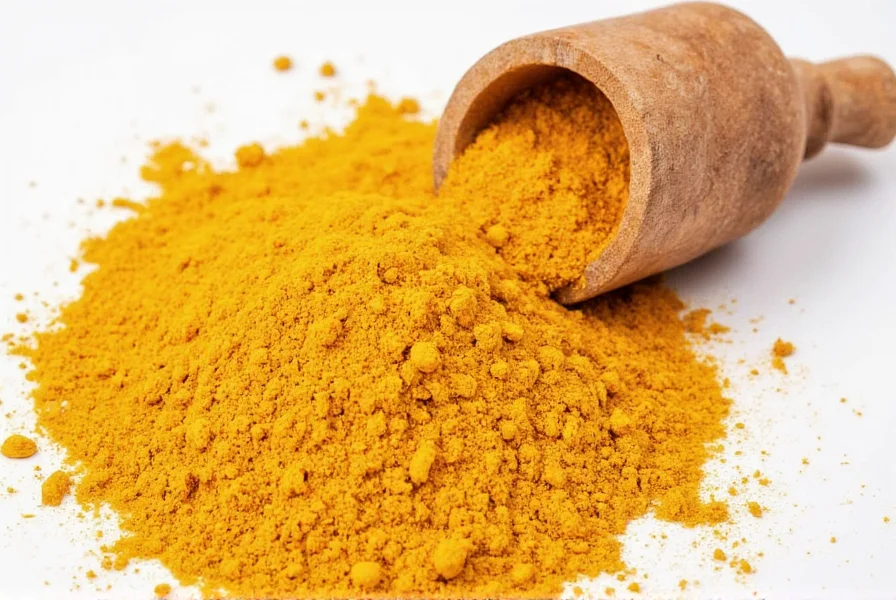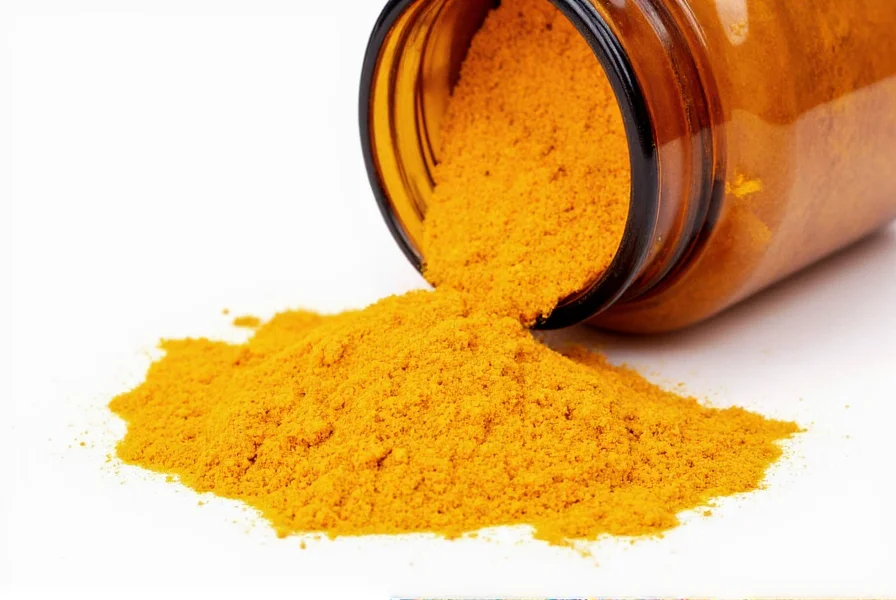Turmeric, particularly its active compound curcumin, has gained widespread popularity for its potential anti-inflammatory and antioxidant benefits. While generally considered safe, understanding the potential side effects of turmeric supplements is crucial for informed usage. This comprehensive guide examines the research-backed evidence on turmeric supplement safety, helping you make educated decisions about incorporating this golden spice into your wellness routine.
Understanding Turmeric and Curcumin
Turmeric (Curcuma longa) is a bright yellow spice commonly used in Asian cuisine and traditional medicine. The primary active component, curcumin, accounts for about 2-8% of turmeric and is responsible for most of its studied health benefits. Most supplements contain concentrated curcumin extracts, often standardized to 95% curcuminoids, which is significantly more potent than culinary turmeric.
When evaluating turmeric supplement side effects and benefits, it's important to distinguish between dietary turmeric consumption and concentrated supplement forms. While culinary use rarely causes issues, supplements deliver much higher doses that can potentially trigger adverse reactions in some individuals.

Common Turmeric Supplement Side Effects
Most common turmeric supplement side effects are mild and gastrointestinal in nature. Research suggests these typically occur at higher doses (above 1,000 mg of curcumin daily) and often resolve with dose reduction:
| Side Effect | Frequency | Typical Dose Trigger | Management Strategy |
|---|---|---|---|
| Digestive upset | Very common (15-20%) | 500+ mg daily | Take with food, reduce dose |
| Nausea | Common (10-15%) | 1,000+ mg daily | Split doses, take with meals |
| Diarrhea | Common (8-12%) | 1,500+ mg daily | Reduce dose, increase gradually |
| Headache | Occasional (5-7%) | 1,000+ mg daily | Hydrate, reduce dose |
| Dizziness | Rare (2-3%) | 2,000+ mg daily | Discontinue use, consult provider |
Serious Side Effects and Health Concerns
While rare, certain serious turmeric supplement side effects require medical attention. These typically occur with excessive doses, prolonged use, or in individuals with specific health conditions:
Cardiovascular Effects
Turmeric may lower blood pressure. Individuals already taking antihypertensive medications should monitor their blood pressure closely, as turmeric and blood pressure medication interaction could cause hypotension. Symptoms of excessively low blood pressure include dizziness, fainting, and fatigue.
Hepatotoxicity
Though turmeric is often promoted for liver health, rare cases of turmeric-induced liver injury have been reported, particularly with high-dose, long-term supplementation. Symptoms include jaundice, dark urine, abdominal pain, and fatigue. Individuals with pre-existing liver conditions should exercise caution and consult their healthcare provider before use.
Who Should Avoid Turmeric Supplements
Certain populations should avoid or use turmeric supplements with extreme caution. Understanding who should not take turmeric supplements is critical for safety:
- Pregnant and breastfeeding women: Limited safety data exists for high-dose supplements during pregnancy. Culinary use is generally safe, but supplements should be avoided.
- Individuals with gallbladder issues: Turmeric may worsen gallstones or bile duct obstruction by increasing bile production.
- People with bleeding disorders: Turmeric's blood-thinning properties may increase bleeding risk.
- Those scheduled for surgery: Discontinue use at least 2 weeks before surgical procedures due to bleeding risk.
- Individuals with iron deficiency: High doses may interfere with iron absorption.
Medication Interactions to Consider
One of the most critical aspects of turmeric supplement safety involves potential medication interactions. The most significant turmeric and blood thinners interaction occurs with anticoagulant medications:
- Blood thinners: Turmeric may enhance the effects of warfarin, aspirin, clopidogrel, and other anticoagulants, increasing bleeding risk.
- Diabetes medications: Turmeric may lower blood sugar, potentially causing hypoglycemia when combined with diabetes drugs.
- Chemotherapy drugs: Turcumin's antioxidant properties might interfere with certain chemotherapy mechanisms.
- Antidepressants: Potential interaction with MAO inhibitors.
If you're taking any prescription medications, consult your healthcare provider before starting turmeric supplements to avoid dangerous interactions.
Safe Dosage Guidelines
Determining how much turmeric is too much depends on individual factors, but research provides general safety parameters:
- Standardized curcumin supplements: 500-2,000 mg daily is generally considered safe for most adults
- Maximum studied dose: Clinical trials have safely used up to 8,000 mg daily for short periods (up to 3 months), but this is not recommended for regular use
- Long-term use: Doses above 1,000 mg daily for extended periods should be monitored by a healthcare provider
- Enhanced absorption formulas: Products with piperine (black pepper extract) or liposomal delivery may require lower doses
For most people seeking is turmeric safe to take daily, moderate daily doses (500-1,000 mg of curcumin) appear safe for long-term use, but cycling usage (taking breaks) may be prudent.

Minimizing Side Effects
You can significantly reduce the likelihood of experiencing turmeric supplement side effects by following these evidence-based strategies:
- Start low, go slow: Begin with 250-500 mg daily and gradually increase over 1-2 weeks
- Take with food: Consuming supplements with meals reduces gastrointestinal side effects
- Choose quality products: Look for third-party tested supplements with clear labeling of curcumin content
- Split doses: Taking smaller amounts 2-3 times daily may improve tolerance
- Stay hydrated: Adequate water intake helps prevent digestive issues
- Monitor your body: Keep a journal of any changes when starting supplementation
When to Consult a Healthcare Provider
While turmeric supplements are generally well-tolerated, consult a healthcare professional if you experience:
- Persistent digestive issues lasting more than a few days
- Signs of allergic reaction (rash, itching, swelling)
- Unexplained bruising or bleeding
- Yellowing of skin or eyes (jaundice)
- Dizziness or lightheadedness
- Before starting supplementation if you have pre-existing health conditions
Remember that turmeric supplement dosage guidelines should be personalized based on your health status, medications, and specific needs. A healthcare provider can help determine if turmeric supplementation is appropriate for you and establish a safe, effective regimen.
Conclusion
Turmeric supplements offer potential health benefits but come with considerations regarding side effects and safety. Most common turmeric supplement side effects are mild and manageable with proper dosing strategies. However, understanding potential interactions and contraindications is essential for safe usage. By starting with low doses, taking supplements with food, and consulting healthcare providers when necessary, most people can safely incorporate turmeric into their wellness routine. Always prioritize quality products and listen to your body's signals when using any supplement.
Frequently Asked Questions
Can turmeric supplements cause liver damage?
While turmeric is often promoted for liver health, rare cases of turmeric-induced liver injury have been reported, typically with high-dose, long-term supplementation. Most studies show turmeric is safe for the liver at standard doses (500-2,000 mg daily). Individuals with pre-existing liver conditions should consult their healthcare provider before using turmeric supplements and monitor for symptoms like jaundice, dark urine, or abdominal pain.
How long does it take for turmeric side effects to go away?
Mild digestive side effects from turmeric supplements typically resolve within 24-72 hours after reducing the dose or discontinuing use. More persistent symptoms may take several days to subside. If you experience serious side effects like signs of allergic reaction or bleeding issues, seek medical attention immediately rather than waiting for symptoms to resolve.
Can I take turmeric with blood pressure medication?
Turmeric may lower blood pressure, so combining it with blood pressure medications could potentially cause hypotension (dangerously low blood pressure). If you're taking antihypertensive medications, monitor your blood pressure closely when starting turmeric supplements and consult your healthcare provider about potential interactions. They may need to adjust your medication dosage.
Does turmeric interact with birth control pills?
There's limited evidence suggesting turmeric might reduce the effectiveness of hormonal birth control, though research is inconclusive. Some studies indicate curcumin may affect liver enzymes involved in metabolizing hormones. If you rely on hormonal contraception, discuss turmeric supplementation with your healthcare provider to ensure your birth control remains effective.
Is it safe to take turmeric every day long-term?
Current research suggests that moderate daily doses of turmeric (500-1,000 mg of curcumin) appear safe for long-term use in most healthy adults. However, some experts recommend cycling supplementation (taking breaks periodically) to prevent potential tolerance issues or unknown long-term effects. Always consult with a healthcare provider before starting any long-term supplementation regimen, especially if you have underlying health conditions or take medications.










 浙公网安备
33010002000092号
浙公网安备
33010002000092号 浙B2-20120091-4
浙B2-20120091-4